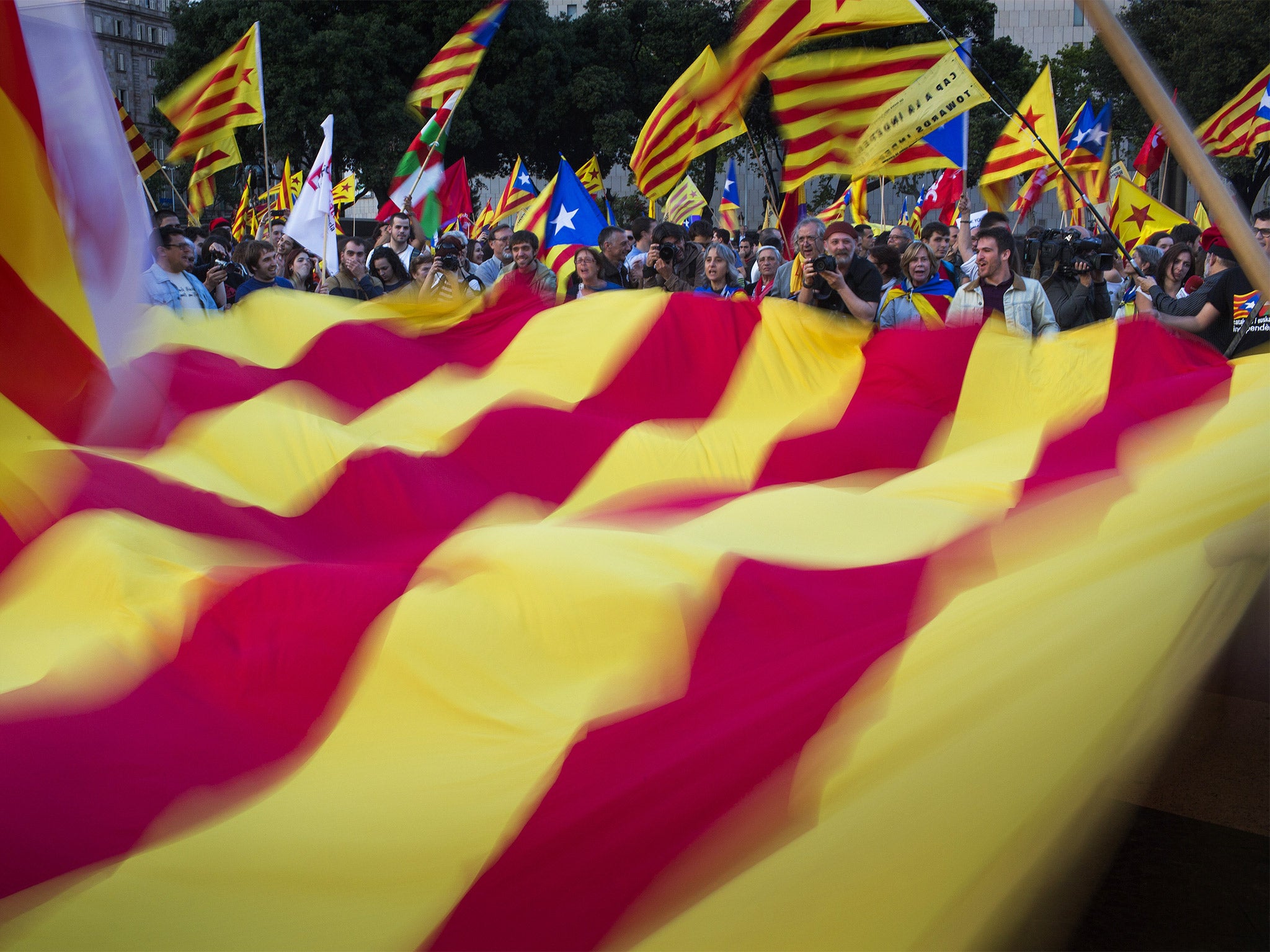Spain fails to reach agreement over Catalan independence vote
President Artur Mas said he had hoped for a 'British solution' to the issue, in reference to September's referendum on Scottish independence

Your support helps us to tell the story
From reproductive rights to climate change to Big Tech, The Independent is on the ground when the story is developing. Whether it's investigating the financials of Elon Musk's pro-Trump PAC or producing our latest documentary, 'The A Word', which shines a light on the American women fighting for reproductive rights, we know how important it is to parse out the facts from the messaging.
At such a critical moment in US history, we need reporters on the ground. Your donation allows us to keep sending journalists to speak to both sides of the story.
The Independent is trusted by Americans across the entire political spectrum. And unlike many other quality news outlets, we choose not to lock Americans out of our reporting and analysis with paywalls. We believe quality journalism should be available to everyone, paid for by those who can afford it.
Your support makes all the difference.The Spanish and Catalonian governments are no closer to preventing a crisis over a planned independence vote for the north-eastern region in November, after their two leaders failed to reach agreement following talks today.
“The Prime Minister told [the Catalan President] Artur Mas that the consultation is not legal and will not take place,” Alicia Sanchez-Camacho, who is head of the premier Mariano Rajoy’s People’s Party in Catalonia, told a news conference.
Ms Sanchez-Camacho noted that Spain’s Constitutional Court had reiterated in March that regional governments may not hold referendums on self-determination, and that in April the national parliament turned down a request by Catalonia to hold what it calls a “consultation” on independence.
However, she said Mr Rajoy was prepared to work with Mr Mas on using regional funds to help Catalonia overcome the economic crisis, from which Spain is only beginning to emerge after six years.
“We are determined, as I told him a year ago, to hold the consultation,” Mr Mas meanwhile said at a news conference in Madrid.
“We understand that in the situation in which relations between Catalonia and the rest of the state have come to, either it is solved by a consultation or there won’t be a stable solution,” he added.
Mr Mas said he had hoped for a “British solution”, in a reference to the Scottish referendum on independence in September. Notwithstanding their lack of agreement, Mr Mas said there was still “an open climate of dialogue” between himself and Mr Rajoy, and he did not rule out a deal being reached in future.
The next step in the drive for independence is set for September, when the Catalonian parliament is due to pass a bill on holding consultations, which Mr Mas says will provide him with the legal basis to call for Catalans to vote on breaking away from Spain on 9 November. If the poll goes ahead, Catalans will first be asked to answer the question “Do you want Catalonia to be a state?” then as a follow-up question for those who tick Yes, “Do you want this state to be independent?” An opinion poll by the Catalonian government in April showed that 47 per cent of respondents planned to vote Yes to both questions.
Spain’s opposition Socialist Party, while opposed to the planned vote, has proposed reforming the constitution to make Spain a federal state in order to make peace with Catalonian leaders.
Catalans speak a distinct language and memories are fresh of its being repressed under the dictatorship of Francisco Franco. They feel they get a raw deal from the central government on taxes, and whereas all 17 of Spain’s regions have autonomy, polls show that 70 per cent of Catalans believe they do not have enough of it.
Overshadowing today’s meeting was an admission last weekend by the founder of Mr Mas’s Convergencia party, Jordi Pujol, that he had hidden a personal fortune from the tax authorities in foreign bank accounts for 34 years. Mr Pujol was President of Catalonia from 1980-2003.
Join our commenting forum
Join thought-provoking conversations, follow other Independent readers and see their replies
0Comments